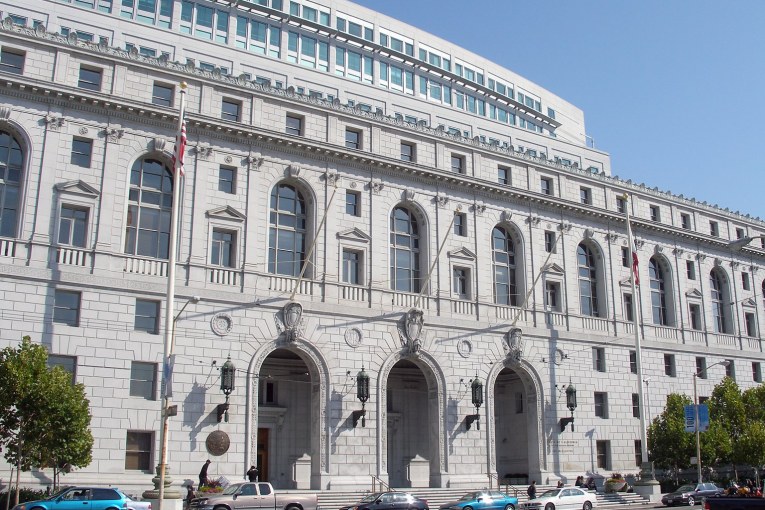

By Michelle Luu and Benjamin Porter
LOS ANGELES, CA — Convicted murderers Jaylin Godbolt, Sean Ray, and Branden Markell Wise all petitioned for review, but June 30 the CA Supreme Court ruled their constitutional right to remain silent–Miranda rights—were not violated and denied the appeal without prejudice.
However, Justices Goodwin H. Liu and Mariano-Florentino Cuéllar thought differently, arguing that the petition should have been granted under violations of the Fifth Amendment.
Liu charged that Miranda rights to protect defendants from “ruse” and other police tricks were under attack and threaten the “fundamental protection against the formidable power of the police” that is “embedded in the consciousness of our citizenry.”
On August 19, 2017, a shooting occurred on Parmelee Ave., Los Angeles that resulted in the death of Florencio Ramirez and the near-death of four others. It was later found that the shooting was a product of deep-rooted hostilities between the 76 East Coast Crips gang and the Florencia 13 gang on debated turf.
Ray, one of the sentenced, was found near the stolen Honda where the shooting originated. Detective Camarillo later discovered that Ray lived near and was associated with Wise.
Camarillo would then locate the final suspect, Godbolt, by proceeding with a “Perkins operation,” which involves placing undercover informants in the defendant’s jail cell with the goal of extracting information and/or confessions.
As will later be explored further, the dubious legality of Perkins operations formed the basis of the petition for review and Justice Liu’s dissenting opinion against the court’s decision to dismiss the petition.
Wise, Godbolt, and Ray were questioned on Jan. 8, Jan. 12, and Jan. 17, respectively, in a series of these Perkins operations involving several informants, including one with the pseudonym “Stanley,” who was paid $1,500.
Throughout the questioning from the informant, Wise revealed the names of the other members present in the car during the shooting, including Ray and Godbolt.
Godbolt and Ray were questioned in a similar manner to Wise with two confidential informants and one informant respectively.
At the end of the case, the three men were found guilty of first-degree murder, four attempted murders, and for shooting in an inhabited building. These crimes also had gang enhancements and firearm enhancements.
Godbolt and Ray were sentenced to 270 years, life imprisonment, and Wise was sentenced to 210 years.
However, on March 12, April 10, and April 12, the court received three petitions for review from the attorneys representing Ray, Wise, and Godbolt. These petitions were denied on June 30.
Upon closer inspection of their cases, Justices Liu and Cuéllar argued against the denials and wrote a dissenting statement that argued for their petition, criticizing the Perkins operations as effectively amounting to coercion.
“The Fifth Amendment to the United States Constitution requires that ‘custodial interrogation be preceded by advice to the putative defendant that he [or she] has the right to remain silent and also the right to the presence of an attorney.’ (Edwards v. Arizona (1981) 451 U.S. 477, 481-482, citing Miranda, at p. 479.),” wrote Liu.
Without violating the Miranda custody—nor did they initiate further contact with the police, the appellants should not have been investigated until counsel had been made available, Justice Liu maintained.
As a result, he said, their Fifth Amendment rights were violated when informants pulled information out of them and delivered it to the authorities without the appellants’ consent.
Liu noted that while the 1990 Perkins upheld the practice of interrogation through “trickery or deceit,” it did not address the legality of using undercover informants during questioning that could potentially exploit defendants who have already invoked their Miranda rights.
Liu added that “at least one state high court” had ruled that without proof of waiver, “statements made to jailhouse informants following the invocation of the right to counsel are not admissible” (Boehm v. State (Nev. 1997) 944 P.2d 269, 271.
In order to “restore Miranda’s core purpose,” Liu recommended that the Legislature examine whether new rules are needed to ensure that statements suspects make to the police are always “the product of his [or her] free choice,” especially considering that the California State Supreme Court has already passed up the opportunity to address the issue on multiple occasions.
Liu quoted Dickerson v. United States (2000) and wrote that the Miranda warnings were “part of our national culture.”
Therefore the protections that the country had given to defendants against the police should be upheld, according to the justice, because doing otherwise would cut off the “fundamental protection against the formidable power of the police” that is “embedded in the consciousness of our citizenry.”
Justice Liu concluded the statement by stating that it “trivializes this protection to say it can be defeated by a simple ruse.’” (De Jesus Valencia, supra, B283588) and said that it was never too late for the Legislature to solve this issue of consent under the eyes of the law enforcement.

